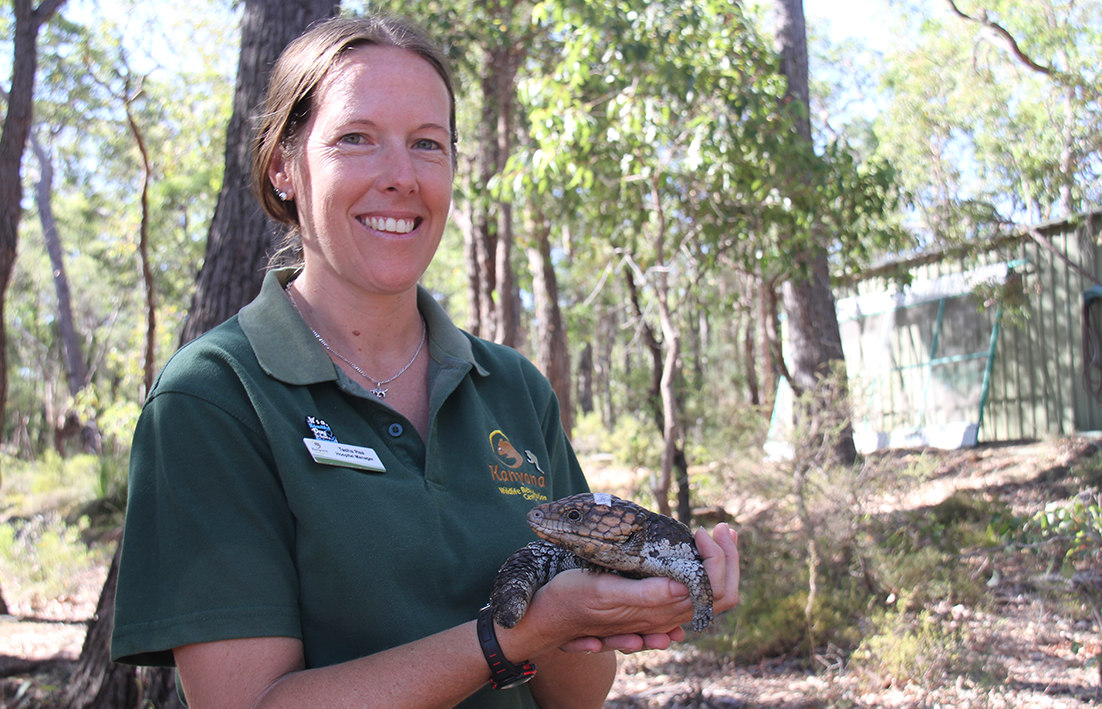
OVER the course of the year, Kanyana Wildlife Rehabilitation Centre believes it will admit more than 300 bobtails – their most commonly admitted species.
Kanyana hospital manager Tasha Rea said as soon as the weather heats up reptiles are on the move – but with more movement comes more risk for them, as Kanyana has already had to deal with dog attacks, motor vehicle accidents, and cuts and lacerations from lawn mowing equipment on bobtails.
Ms Rea said it’s important to check long grass before it’s cut, as it’s a prime bobtail habitat, so checking before mowing will help avoid injuring the creatures.
She said the centre has seen bobtails cut-up by whipper-snippers and lawnmowers which staff and volunteers have helped nurse back to health.
“Whipper-snippers tend to be a little bit more nasty, just because of the nature of the machine … they seem to do more damage than the lawnmower.”
She also wants to remind people that bobtails on the side of the road can be relocated (if it’s safe to pull over and do so) and that it’s important to keep dogs away from them – in fact, dogs can even be trained to not harm bobtails.
The centre also treats more than either human or animal related injuries to bobtails: they also provide care to the critters if they come down with bobtail flu.
Ms Rea said bobtails which have gunky eyes, gunky noses or look underweight are all displaying tell-tale symptoms of the bobtail flu – a sickness which only affects bobtails and isn’t contagious to humans.
“The dead giveaway is that tail, so if the tail’s really flat, they’re very underweight, and that can be a real positive sign of the flu,” she said.
“So, with that, if they aren’t found they will actually die – they will die from upper respiratory tract infection (URTI).”
But not all is lost for an injured or sick bobtail – Ms Rea said injured bobtails bought to Kanyana will be looked after by the centre’s team of vets and volunteers.
Injured bobtails can be bought to Kanyana wildlife centre but care must be taken when handling them as they can also bite – so always pick them up from the behind the neck and cover their head to distract them before attempting to do so.